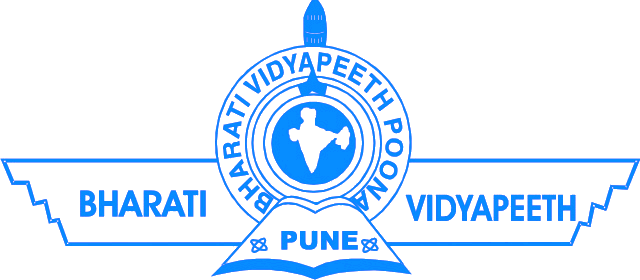Artificial Intelligence and Machine Learning
About Department
About Department:
Artificial Intelligence and Machine Learning are integral branches of computer science, closely interconnected and among the most rapidly advancing technologies in today’s digital era. These disciplines serve as the foundation for developing intelligent systems capable of enhancing various aspects of life and work. AI is dedicated to creating systems that replicate human intelligence, enabling machines to carry out tasks that typically require human cognition. In contrast, ML focuses on leveraging data to derive insights and learn from patterns without being explicitly programmed. Artificial Intelligence involves the simulation of human cognitive processes in machines, allowing them to perform complex tasks such as reasoning, learning, and problem-solving. The primary objective of AI is to build intelligent agents capable of understanding, analyzing, and making decisions. This includes a broad spectrum of technologies like machine learning, natural language processing, computer vision, robotics, and applications like drones, among others. Machine Learning, a subset of AI, emphasizes the creation of algorithms and statistical models that empower systems to learn and enhance their performance through data-driven approaches, rather than relying on fixed instructions. ML is widely adopted across industries in areas such as image and speech recognition, natural language processing, recommendation systems, autonomous driving, and other AI-enabled solutions. In essence, AI represents the broader field of developing intelligent systems, while ML focuses specifically on enabling those systems to learn and adapt from data. Together, they are pivotal in advancing modern technology and have far-reaching applications across multiple domains.
- Year of Establishment:2025
- Student's Intake:60
- Head of Department:Mr. Ranjeet Ramesh Pawar
- Contact - Phone no.:022-27580126, EXT 183
- Teaching Staff:01+03=04
- Non-Technical Staff:02
Vision, Mission etc.
Vision
To revolutionize industry and society by leveraging the transformative potential of Artificial Intelligence and Machine Learning.
Mission
- Deliver high-quality education aimed at developing a skilled workforce proficient in state-of-the-art concepts and technologies within the domains of Artificial Intelligence and Machine Learning.
- Equip students with technical expertise and entrepreneurial skills to thrive in the evolving AI landscape.
- Foster a sense of professional ethics, social responsibility, environmental awareness, and commitment to lifelong learning.
- Establish a center of excellence in AI and computing to promote interdisciplinary research and innovation.
Program outcomes (Pos)
1. Basic and discipline specific knowledge: Apply knowledge of basic mathematics, science and engineering fundamentals and engineering specialization to solve the engineering problems.
2. Problem analysis: Identify and analyze well-defined engineering problems using codified standard methods.
3. Design/ development of solutions: Design solutions for well-defined technical problems and assist with the design of systems components or processes to meet specified needs.
4. Engineering tools, experimentation and testing: Apply modern engineering tools and appropriate technique to conduct standard tests and measurements.
5. Engineering practices for society, sustainability and environment: Apply appropriate technology in context of society, sustainability, environment and ethical practices.
6. Project management: Use engineering management principles individually, as a team member or a leader to manage projects and effectively communicate about well-defined
engineering activities.
7. Life-long learning: Ability to analyze individual needs and engage in updating in the context of technological changes.
PEO’s:
PEO – 1. The students will be socially responsible to create environment friendly AI solutions for real-time problems adapting professional ethics.
PEO – 2. The students will practice AI framework and technologies in multidisciplinary work environments.
PEO – 3. The student will be able to work individually and as a team by communicating effectively in their area of work.
PSO’s:
PSO – 1. Students will be able to solve real-life problems using the latest and advanced technologies in artificial intelligence and machine learning.
PSO – 2. Apply knowledge of computer engineering and an understanding of management principles for applying them while managing artificial intelligence and Data science projects.
Faculty
Faculty List and Profiles
Faculty List
| S.No | Name | PAN No. | Qualification | Area Of Specialization | Designation | Date Of Joining | Date On Which Designated As Lecturer / Sr. Lecturer/ HOD | Currently associated (Y/N) | Nature Of Association (Regular/ Contract/ Adjunct) | If contractual mention Full time or Part time | Date Of Leaving (In case of Currently associated is "No") |
| 1 | Mr.Ranjeet Pawar | AOOPP4110Q | M.E | Computer | HOD |
`10-1-2006 | 14-11-2012 | Y | Regular | ||
| 2 | Mrs Monicka Nitin Jagtap | BKIPM8762L | B.E.(Electronics Engineering.) | Electronics Engineering | Lecturer | 01/01/2025 | 01/01/2025 | Y | Regular | ||
| 3 | Mrs Rupali Shekar Bhosale | AQGPG0667D | B.E.( Electronics Engineering) | Electronics Engineering | Lecturer | 01/01/2025 | 01/01/2025 | Y | Regular | ||
| 4 | Mr. Kanda kumaran Thevar | BTPPT4965C | M. Tech. Information Security (pursuing) | Information Technology | Lecturer | 1-1-2025 | 01-01-25 | Y | Contract |
Faculty Profiles
Continuous Evaluation System
Continuous Evaluation System
Internal Continuous Evaluation System:- Evaluation of the students’ theoretical knowledge and practical performance skills are done continuously for all the courses by the concerned faculty.
- Assignments are given after the completion of a Chapter in each course (subject).
- Two Unit Tests are conducted in each semester.
- During practical sessions, oral questions are asked and the students are assessed based on their ability to understand the Process and Product related to each experiment.
Feedback System
Feedback System
- Students feedback is take during each semester (D-14 format provided by MSBTE)
- Students feedback of faculty is taken during each semester.
- Exit students (students passing out from the college) feedback is also taken.
- Feedback is also taken from Stake holders like Parents, Alumni and Employers of the students from this Institute.


